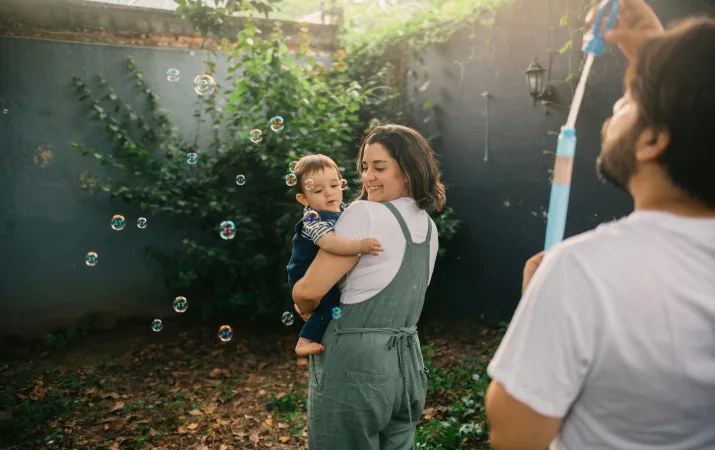How to write a book and get published
By Open Universities Australia
Whether you have a completed manuscript, a chapter or the scribble of an idea, here are some tips on getting your writing onto a bookshelf at your nearest Dymocks.
Can anyone just write a book?
The short answer is a resounding YES. And since you’re reading this, we’ll hazard a guess that you have one, however unformed, pinging between your neurons.
We’ll also bet that you’re smart enough to know that the odds of getting published by a major publisher (not yourself) are not very high, but here’s an encouraging fact—95% of rejected manuscripts are due to spelling and grammar mistakes (easily avoided), odd narratives (fixable with training) or unoriginal voice (you’ve been accused of many things, but never this!).
Now that you have an idea of how to dodge the publisher’s recycle pile, let’s get into the meat of how to write your book and get it published.
What should I write a book about?
Given that your idea for a book likely landed you on this page, we feel that you’re being a bit coy. But, we’ll play along. For the purposes of this article, ‘books’ (and their contents) fall into the following broad categories, which are a solid starting point for idea generation:
commercial fiction, where the emphasis is on plot (could be for adults, young adults – that’s ‘YA’ in industry-speak, or kids)
literary fiction, which is meaning and character-driven (mainly for adults, and sometimes YA)
non-fiction, including history, travelogues, biographies and memoirs.
We hope this gives you a clearer picture of where your book-that-needs-to-be-written fits.
Here’s one very important piece of advice from Kazuo Ishiguro, Booker Prize and Nobel Prize in Literature winner—"Write about what you know' is the most stupid thing I’ve heard. It encourages people to write a dull autobiography. It’s the reverse of firing the imagination and potential of writers."
So there you have it. Permission to set your novel in 10th century Iceland, on the frozen planet Neptune or *name your own tropical universe here*. Heck, why not create your own language like J.R.R. Tolkien?
You may find comfort in knowing that many aspiring writers take up writing courses to hone their skills, develop a percolating idea or improve a draft. If that’s something you’ve been thinking about, some of Australia’s leading universities offer online writing degrees, short courses and single subjects through Open Universities Australia.
How long does it take to write a book?
How good are you at overriding your procrastination urge and unduly harsh inner critic? If you’re one of a rare few who have mastered their nature, you could pump out your book in 30 days to six months. Many writers take more than a year. A decade, even. Case in point, Donna Tartt— who took eight years to write The Secret History, ten for The Little Friend and close to eleven for The Goldfinch.
Remember, how fast you write is no reflection on how well you write. And we all know which is more important.
How many words are there in an average book?
Generally speaking, fiction and non-fiction targeted at adults clock in at between 70,000–120,000 words, with the average word count sitting at 80,000.
YA fiction is a little bit shorter at around 50,000–70,000 words. With children’s books, the younger the audience, the quicker the read needs to be. For example, books for the 7-to-9-year-old set usually have about 10,000–25,000 words in them.
We’re getting a little niche here, but cookbooks surprisingly also come in at anywhere between 50,000–150,000 words (the best ones are full of narrative and double up as armchair travel).
Is it better to self-publish or find a publisher?
So, here’s the main difference. When you self-publish, you own the copyright and royalties to your work. You’ll typically take home 70% of the sale price of every copy. Bonus, you get to price your own work. So, if you’ve decided that your book should sell for $24.99, your earnings per copy sold would be $17.49.
But don’t forget the other costs involved in self-publishing, like editing, formatting, cover design, proofreading and marketing. Overlooking your own typos is only human, so you really don’t want to skimp on an editor and proofreader. Very conservatively, you should set aside $3,000–$4,000 for these expenses if you self-publish.
With traditional publishing, you don’t have to worry about fronting the costs of getting your book on the shelf or promoting it. The downside—you’ll probably only be entitled to 10% of the sale price and you’ll relinquish decision-making to the publishing house.
Ah, but don’t traditional publishers also give out advances? Well, yes, but an advance is not the financial cure-all you’re hoping for.
It’s worth noting that an advance is more accurately an advance against potential future earnings. In essence, it’s a bet—your publisher is taking a punt that you’ll sell enough copies for them to recoup the advance they gave you, which you’ll be earning back for them at said rate of 10% per copy sold. Only once you’ve ‘paid back’ your advance, will you start seeing cheques in the mail.
On the matter of prestige, common belief is that you need a serious publisher to be considered a serious writer, but unicorns do exist and they sure as heck can write. In 2022, the Miles Franklin Literary Award shortlisted a self-published author for the first time in its 65-year history. Michael Winkler’s book, Grimmish, called a ‘glorious form-buster’ by The Guardian, didn’t end up winning the prize, but the fact that it was shortlisted at all is indication that elitism is hopefully being pushed out the front door.
In short, you should meditate on what’s important for you before making a decision on how you want to publish—we can only provide you with the facts.
What do publishers look for in new authors?
Let’s have a look at leading Australian publishers’ submission guidelines for some clues. These are updated every-so-often, as sales data changes what publishers are looking for. So be sure to check publishers’ own sites regularly to see what might tickle their fancy.
At present, Allen & Unwin is interested in literary and commercial fiction as well as non-fiction for adults. Specifically, they want autobiographies and memoirs "by Australians who have had interesting or eventful lives". They’re not interested in poetry, romance, adult fantasy, science fiction, short stories or novellas at the moment.
When it comes to writing for children and young adults, Allen & Unwin state that they’re especially interested in authors who identify as being of diverse backgrounds—First Nations, LGBTIQA+ and culturally diverse backgrounds as well as people living with disabilities.
Harper Collins Australia runs The Banjo Prize, which aims to uncover new commercial fiction voices. It even comes with a handsome advance of $15,000. Winning books have included stories about a bankrupt farmer who dies in a fire, a woman’s battle for survival against men who are after her and a crime that takes place during a natural disaster, amongst other
Over at Hachette, The Richell Prize for Emerging Writers gives one writer $10,000 in outright prize money (unheard of!) and a year-long mentorship. They don’t even ask for a completed manuscript—just the first three chapters, a clear vision and commitment to finish the book.
Spend time looking at more publishers’ submission guidelines—only send your manuscript to those who’ll publish work of your genre.
How much will a publisher pay for a first book?
According to the Australian Society of Authors’ members survey in 2020, 52% of writers did not receive an advance. Of those who did, only 13% said the advances were over $10,000. The majority of Australian writers get advances of less than $5000. This is indicative of what first-time writers get for their book.
According to the 2022 National Survey of Australian Book Authors, the average writer only earns $18,2000 annually from writing. Many depend on having a second job to cover the bills. It’s no secret, Australian writers are not in it for the money. They do it for the love of words.
At the other end of the scale, is Liane Moriarty, the only Australian to debut at the top of the New York Times bestsellers list with Big Little Lies. Her big payday came when Nicole Kidman and Reese Witherspoon optioned screen rights to it and turned it into a two-season drama series.
But her path to success was indeed paved with rejection letters. While working in advertising around the time of the 2000 Sydney Olympics, she decided to write a children’s book titled The Animal Olympics. According to Liane, “It was enthusiastically rejected by every publisher in Australia.” Undeterred, she enrolled in a masters degree in creative writing… a perfect segue…
Learn to write a book (and become a better all-round writer on the side!)
If, like Liane, you’re stubbornly determined to write and are willing to take a course to improve, you’re in the right place.
Creative writing courses don’t just teach you to think critically and analytically about plot, meaning, characters and style. They also incorporate elements like writing workshops (where you'll exchange constructive criticism with fellow writers) and regular writing prompts (that get you in the habit of writing, regardless of how you might feel on any particular day). Begone, odd narratives. Begone, writer’s block
There are over 76 ways to study creative writing online with leading Australian universities via Open Universities Australia. Plus, you’ll be learning from published authors and editors. From 13-week short courses to 18-month postgraduate degrees and everything in between, you can choose what’s right for your frame of mind and wallet.
An accidental benefit of studying creative writing? ALL your writing will improve. You’ll even open up new career options for yourself—in editing, screenwriting, journalism and publishing (let’s call this “gathering intel for your own manuscript”).
Ready to write your book and get it published? Polish your skills, revise your draft and get amongst a community of other writers with an online creative writing course.
Browse thousands of courses from leading Australian universities
Or complete the form on this page to chat to an advisor about study options.



